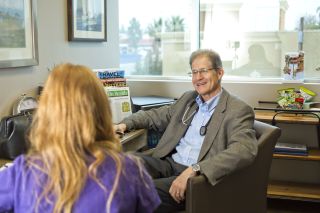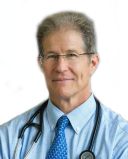Depression
The Importance of Social and Emotional Health
Here are resources to help people navigate whole-person health concerns.
Posted March 20, 2023 Reviewed by Davia Sills
Key points
- Strong personal relationships, circles of support, and healing spaces can help people to overcome hurdles.
- A major change in someone's life can trigger “situational depression.”
- Counseling, individually or with a like-minded group, can be a valuable way to support oneself and others.

When you think about how you’re feeling, physical health may be the first thing that comes to mind. However, when we're talking about whole-person health, your social and emotional well-being matter just as much—in fact, they are an integral part of how you’re doing physically, and vice versa.
These days, we’ve been seeing a few specific emotional and social health concerns. For some, depression that may have started during the pandemic is hanging on, or seasonal affective disorder is reducing their quality of life.
Others are feeling a sense of burnout at work while facing a rising cost of living, which means quitting or changing jobs may not be an option. To counteract all this, strong personal relationships, circles of support, and healing spaces are very important now.
In this article, we’ll talk through some of these concerns and challenges and direct you to resources to improve your social and emotional well-being.
What’s your relationship with work?
Sigmund Freud is often credited with saying that to love and to work are our main tasks as humans.[i] A study conducted at the University of Stirling bears this out.[ii] In the words of researcher Simon McCabe, having a job gives us a sense of “value, purpose, and meaning.”[iii] But what if you don’t get that from your job?[iv]
Since 2020, many people have quit their jobs in what has become known as the Great Resignation. Others are practicing “quiet quitting”—being physically present but checking out mentally. Another new term for job-related apathy is “resenteeism.” You’re not absent, but you’re resentful enough not to do much while feeling too anxious to switch jobs.
If any of this sounds like you, it’s possible that you may be experiencing burnout. This can happen if you’ve been in a particular role or career too long, have recently gone through an extremely busy period, or (as for many healthcare workers during the COVID-19 crisis) have been pushed to your limits repeatedly with little relief.
Our article "5 Steps to Avoid Burnout at Work" can help you recognize the signs and figure out what to do next. You’ll find helpful questions to ask yourself in a free companion article on work burnout, A Move From Burnout Culture to Wellness Culture. Reflecting on these could help you make some very healthy changes.
Could you be depressed?
Depression comes in more than one form. There is chronic, clinical depression, which is a serious mental illness. There is also something called “situational depression,” a disorder in adjusting to a stressor or change in your life.[v] If you have recently moved, had a serious physical illness, been divorced, or experienced just about any other major change and don’t feel like doing much, find yourself crying, snapping at people around you, eating more or less than usual, or having trouble sleeping, consider situational depression or an adjustment reaction. Talk to your doctor or another trusted healthcare provider.
Getting a read on your symptoms from a mental health professional could be helpful, too. Check out Psychology Today's Therapist Directory to find a therapist near you.
Working with a therapist doesn’t have to be a yearslong proposition. A few sessions may give you the insight you need to start feeling better. Counseling, individually or with a like-minded group, can be a valuable way to support yourself (and others, in a group setting). Your therapist or primary care doctor may also prescribe medication to help you manage symptoms that are disrupting your life.
Whole health approaches for depression include light therapy, exercise, yoga, mindfulness meditation, and more. We want to offer the caveat that clinical depression is a serious, sometimes life-threatening illness. Talking to your own doctor or health care provider is important before trying anything.
Circles of hope and healing
We’ve talked before about how social relationships are crucial to whole-person health. (It’s not surprising that humans are not at their healthiest when isolated with only electronic devices for company.) Learn more from our blog post "How Emotional Connections Can Help You Heal."
Tips for healthy and satisfying relationships include:
- Be polite, patient, and kind to those in your friendship circle—even if you don’t agree on every issue in the news. It’s OK to do this while maintaining boundaries. A boundary is a protective fence around yourself that allows you to monitor the impact of others on you.
- Spend some time outside! For example, try walking meetings.
- Set up your environment for social and emotional health. We have a five-step guide to creating a healing environment to nurture your family, make friends feel welcome, and help you relax so you’re a better relationship partner for those who value you most.
Creating a circle of support is especially important if you are a caregiver. Whether you care for small children, another adult, or work in a different caregiving role, think about filling your own cup. Our blog post "Widen Your Circle of Support to Be a Better Caregiver" gives you ways to do this.
Balanced health
Some days—or weeks, months, or seasons—your focus will be on physical health. If you’re getting over a cold, for example, you are likely to be concentrating on rest, not infecting others, and supporting your immune system. At other times, your focus may be emotional, social, or spiritual. Getting married or losing a loved one are highly emotional times.
Consider this: During emotionally charged times, what do you need for physical health and social connections? When you feel stressed physically, how can you reach out for social support? Keeping the domains of whole-person health in balance will help you feel and function better overall. There is no perfect balance, but adding more of what you need can help you be—and share—from a place of health.
References
[i] Elms AC. Der apokryphe Freud: Sigmund Freuds berühmtest >>Zitate<< und ihre wahren Quellen [Apocryphal Freud: Sigmund Freud' most famous "quotations" and their actual sources]. Luzif Amor. 2005;18(35):82-108. German. PMID: 16021771.
[ii] University of Stirling. Freud’s views on love and work backed up by Stirling research. 7 June 2018. Available at https://www.stir.ac.uk/news/2018/06/freuds-views-on-love-and-work-backed-up-by-stirling-research/. Accessed February 15, 2023.
[iii] Ibid.
[iv] Lalljee J. 'Resenteeism': When you hate your job enough to do more than 'quiet quit' but are too anxious about the economy to leave. Business Insider. February 9, 2023. Available at https://www.businessinsider.com/resenteeism-quiet-quitting-recession-jobs-inflation-labor-shortage-2023-2?op=1. Accessed February 21, 2023.
[v] Higuera V. Situational depression or clinical depression. Medical News Today. July 28, 2022. Available at https://www.medicalnewstoday.com/articles/314698. Accessed February 21, 2023.




